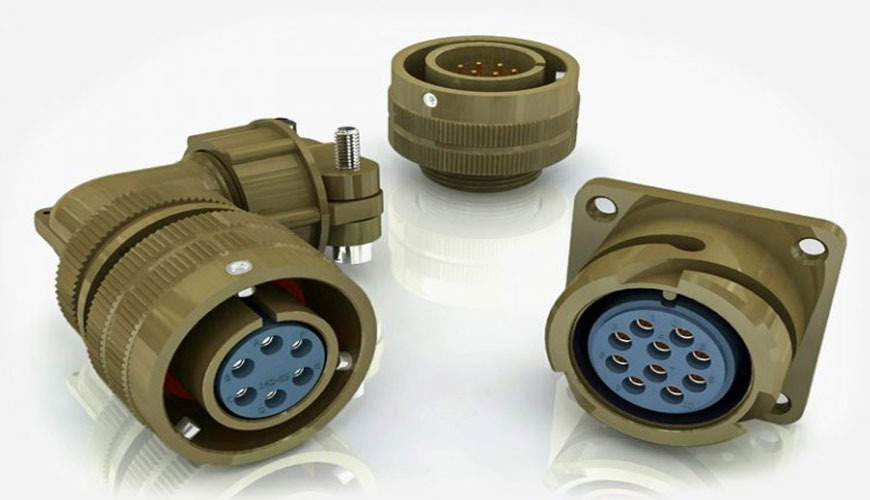

The MIL-STD-1344 standard, a US military defense standard, describes uniform test methods for testing electrical connectors. The requirements that electrical connectors subject to these test methods must meet are specified in separate specifications, as appropriate, and tests are performed as specified herein.

According to this standard, unless otherwise specified, all measurements are made under the following ambient conditions:
When the maximum or minimum temperature is specified here, the specified temperature must be reached and a deviation of 5 degrees allowed. For example, a temperature cycle can be defined as minus 55 degrees to plus 125 degrees. Equipment used during testing should keep the sample area within 3 degrees of variation in specified test temperatures. The temperature control of this equipment should be 2 degrees or better for a single point.
The reference conditions for the calculations are 20 degrees Celsius for temperature, 760 millimeters of mercury for air pressure and does not apply to relative humidity.
The calibration requirements of the test equipment must be in accordance with the MIL-C-45662 standard.
The test methods defined in the MIL-STD-1344 standard are:
1) Environmental tests (1000 class)
2) Mechanical tests (2000 class)
3) Electrical tests (3000 class)
Our organization also provides testing services for electrical connectors within the scope of MIL-STD-1344 standard, with its trained and expert staff and advanced technological equipment, among the numerous test, measurement, analysis and evaluation studies it provides for businesses in various sectors.
To get an appointment, to get more detailed information or to request an evaluation, you can ask us to fill in our form and reach you.